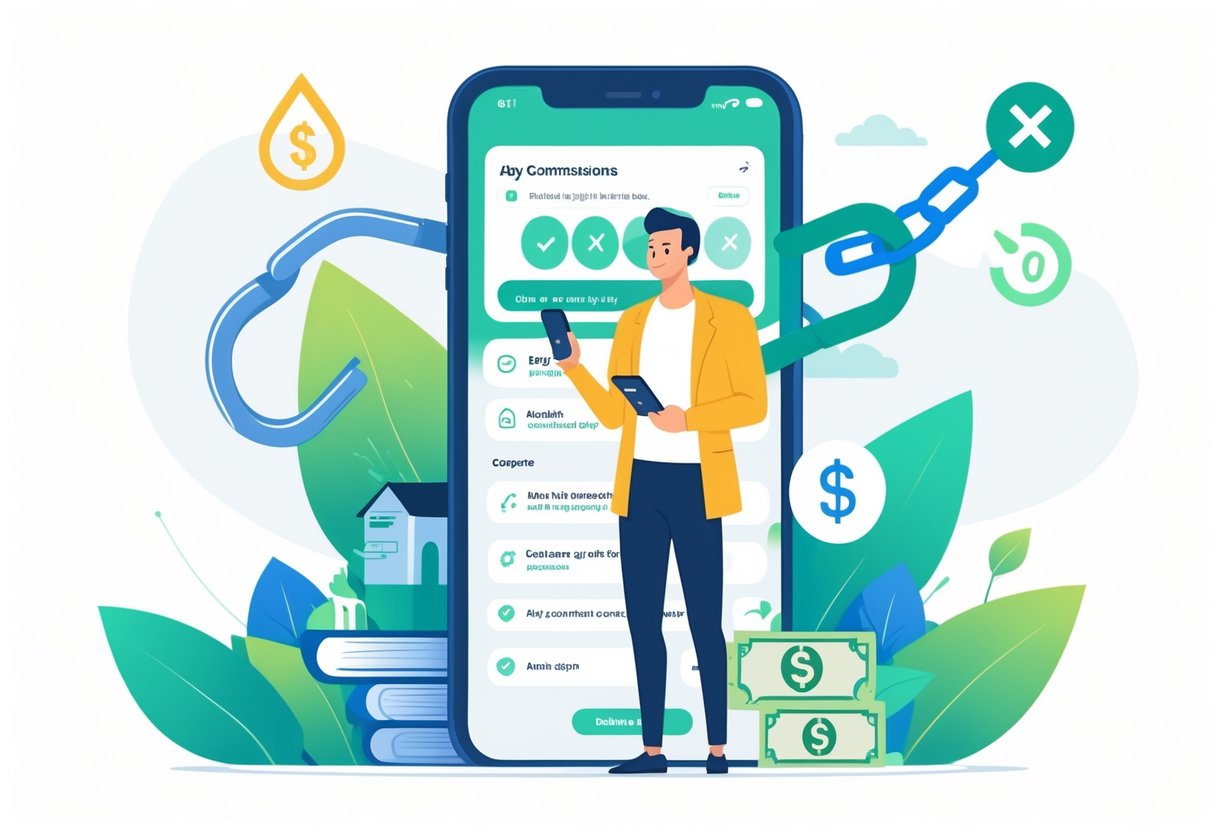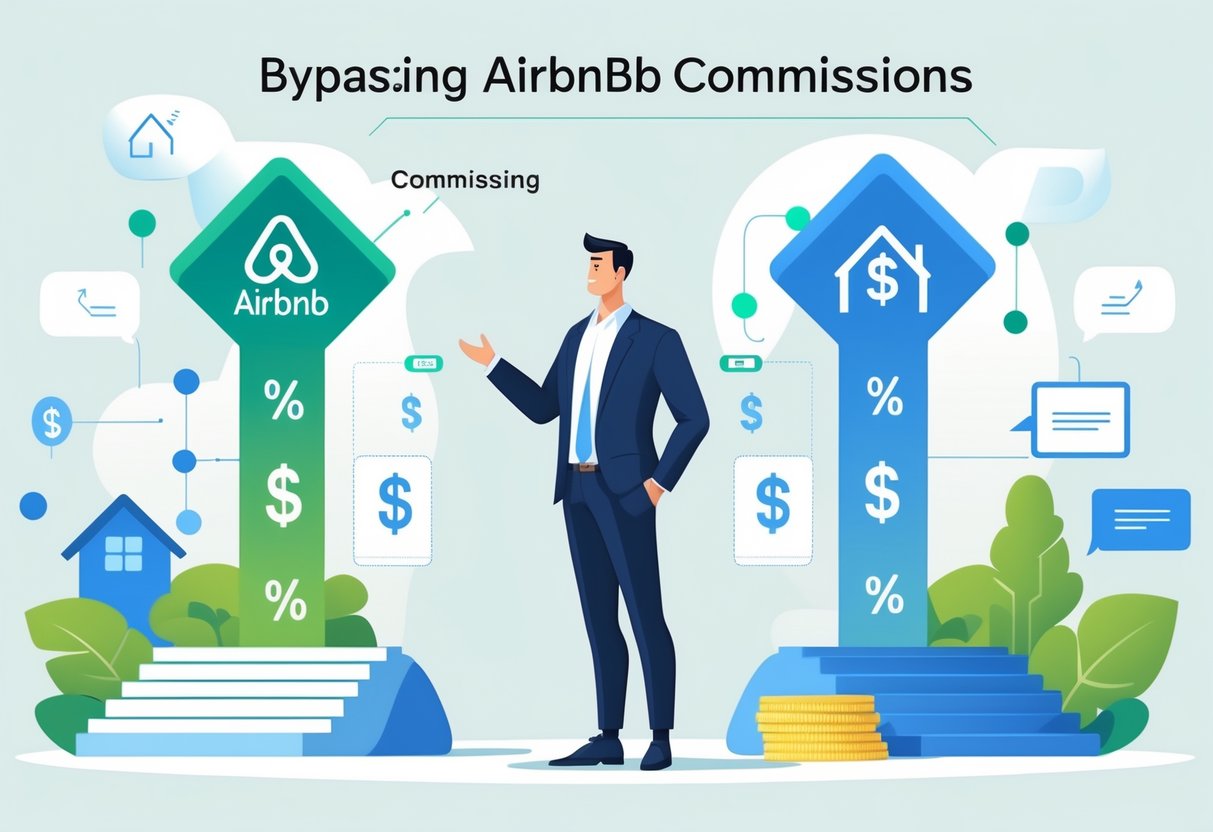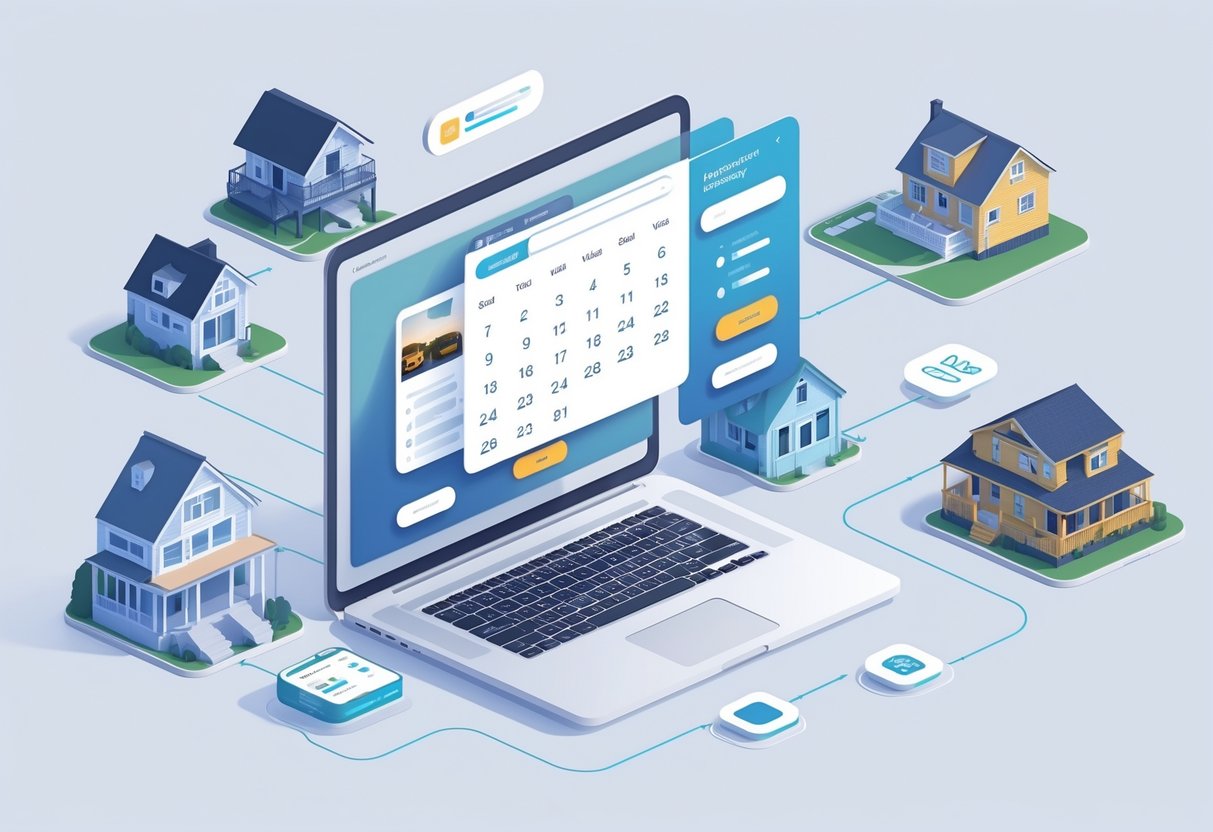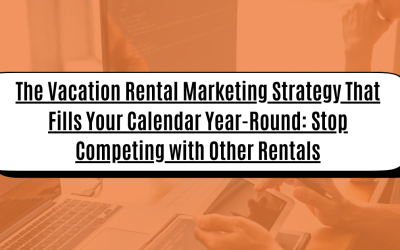Airbnb takes a commission from hosts—anywhere from 3% up to 16% per booking. That can really eat into your earnings.
Plenty of property owners ask if there’s any real way to dodge these fees and still keep guests coming in.

The most effective way to bypass Airbnb commissions is through direct bookings, where guests book directly with property owners instead of through the platform. This lets hosts avoid Airbnb service fees entirely and maybe even offer guests a better deal by sharing the savings.
Of course, skipping Airbnb isn’t without its headaches. Direct booking takes extra work and can make your place less visible, but there are tools and tricks that help hosts pull it off and keep bookings steady.
Key Takeaways
- Direct bookings cut out Airbnb’s 3-16% commission, but hosts have to handle their own marketing and support.
- Hosts can use Chrome extensions or their own websites to book outside Airbnb.
- Other booking platforms exist, but they usually charge their own commissions—often 15-18%.
Understanding Airbnb Commissions

Airbnb piles on several types of fees for both hosts and guests. Starting in late 2025, the company will roll out a 15.5% host-only commission structure.
They also tack on currency conversion and processing fees—these can really add up.
How Airbnb Calculates Fees
Airbnb bases its fees on the subtotal: nightly rate plus extras like cleaning. In the past, both hosts and guests paid separate charges.
From October 27, 2025, most users will pay a single 15.5% host-only fee on the subtotal before taxes.
Hosts using property management software have to use this new fee structure. If your place is in Brazil, the rate jumps to 16%.
Fee Calculation Example:
- Nightly rate: $100
- Cleaning fee: $50
- Subtotal: $150
- Host fee (15.5%): $23.25
- Host receives: $126.75
If someone books for over 28 nights, the commission drops a bit. “Super Strict” cancellation policies add another 2% on top.
Types of Fees Charged to Guests and Hosts
Airbnb service fees cover payment processing, marketing, and customer support. Fee structures depend on how hosts set up and where they’re located.
Host Fees:
- Standard: 15.5% of subtotal
- Brazil: 16% of subtotal
- Long-term stays: Lower rates
- Super Strict cancellation: +2%
Guest Fees:
Now, under the new model, most guests don’t pay separate service fees. Airbnb wants to make pricing more transparent by showing the total upfront.
Some places still use split-fee setups, charging guests 6-12% in service fees. Special hotel partnerships might have their own thing going on.
Other Charges:
- Payment processing
- Refund processing
- Penalties for host violations
Currency Conversion and Hidden Charges
Airbnb applies currency conversion fees if hosts and guests use different currencies. These usually run 3-5% over regular exchange rates.
Common Scenarios:
- Host in Europe, guest pays in USD
- Listings in multiple currencies
- Cross-border payments
The exchange rate changes all the time. Hosts can cut down on conversion costs by listing in the currency of their main market.
Other Hidden Costs:
- International bank transfer fees
- Chargeback fees for disputes
- Resolution center penalties for hosts
Payment delays can mess with exchange rates between booking and payout. Hosts get paid in their selected currency, but conversion happens at payout, not at booking.
Airbnb may collect local taxes and charge administrative fees in some places. These are separate from the main commission.
Legal and Ethical Implications of Bypassing Airbnb Fees

Trying to get around Airbnb’s commissions breaks their rules and can land both hosts and guests in hot water. The platform’s latest fee transparency policy bans off-platform payments and says all fees must be clear upfront.
Terms of Service Considerations
Airbnb’s Terms of Service don’t allow hosts to move bookings off the site or collect payment elsewhere. The Off-Platform and Fee Transparency Policy (since May 2025) made these rules even tougher.
If you break them, here’s what can happen:
- Account suspension or permanent ban
- Listing removal
- Loss of Superhost status
- No more Host Guarantee coverage
Airbnb watches host-guest messages for rule-breaking. Asking for off-platform payments or contact info sets off their alarms.
Hosts can’t offer discounts for direct bookings or send links that pull guests away from Airbnb. Even hinting at future direct deals can get you in trouble.
Potential Risks for Hosts and Guests
Both hosts and guests take on real risks by sidestepping Airbnb’s commission rules. These go beyond just getting kicked off the platform.
Host Risks:
- No payment protection or dispute help
- No insurance for damage
- Harder tax reporting without Airbnb docs
- Possible fraud if guest payments go wrong
Guest Risks:
- No help for disputes or cancellations
- No travel insurance or booking guarantees
- Credit card chargeback headaches
- Safety risks without Airbnb’s vetting
If you pay outside Airbnb, you lose the platform’s secure payment system. Hosts lose the $1 million Host Guarantee, and guests give up 24/7 support.
Strategies for Reducing or Avoiding Airbnb Commissions
There are a few smart booking tactics that can help travelers cut down on Airbnb fees. Adjusting currency and booking longer stays are two big ones.
Adjusting Currency Settings to Avoid Conversion Fees
Currency conversion fees sneak onto Airbnb bookings, usually 2% to 4% if you pay in a different currency than the listing.
Always check if the place is listed in your home currency. A lot of hosts do this to pull in international guests.
How to dodge conversion fees:
- Change Airbnb to show prices in your currency
- Check Airbnb’s exchange rate against the real market rate
- Use a credit card with zero foreign transaction fees
- If it’s cheaper, pay in the host’s local currency
Some credit cards beat Airbnb’s exchange rates. Travel cards from your bank can save you a few bucks compared to Airbnb’s built-in conversion.
Booking early can help if exchange rates are swinging. Locking in a good rate can save you from future spikes.
Booking for Longer Stays to Lower Service Fees
Longer stays often mean lower service fees and better nightly prices. Many Airbnb hosts give discounts for week-long or month-long bookings.
Weekly discounts usually run 10% to 20%. Monthly rates can be 30% to 50% off for 28+ day stays.
Typical discounts:
- 7+ nights: 10-15% off
- 28+ nights: 20-40% off
- 90+ nights: Up to 50% off
Service fees shrink the longer you stay. A $50 fee hurts less on a two-week stay than on a weekend.
You can negotiate with hosts right in Airbnb’s messages. Most hosts like longer bookings—they mean less cleaning and less hassle.
Some travelers book a short stay first, then talk about extending if things go well. It’s a way to test the waters before committing.
Direct Booking: The Most Effective Method
Direct booking saves travelers about 17% by cutting out platform fees. Hosts also get total control over their bookings.
To do this, you need to find host contact info, know the pros and cons, and use the right tools for safety.
Finding Host Contact Information Outside Airbnb
You can often find hosts outside Airbnb with a little digging. The best trick is to search for the property’s address or any unique details from the listing.
How to search:
- Google the exact address with “vacation rental”
- Use standout property names or features
- Search social media using the photos
- Check local tourism sites and directories
A lot of hosts have their own sites for direct bookings to skip commissions. Specific searches can turn these up.
Heads up: Never mention direct booking in Airbnb messages. That can get hosts in trouble.
Benefits of Direct Booking for Guests
Direct booking usually means big savings. Platform commissions can hit 15-20%, so going direct often gets you a better price.
Money perks:
- No service or booking fees
- Lower nightly rates
- Flexible payment options
- Room to negotiate
Extra benefits:
- Talk directly with owners
- Get local tips and advice
- Faster answers to questions
- Custom check-in times
Personalized support from hosts can make the trip better. You might get more authentic recommendations and a more relaxed experience.
Advantages for Hosts Using Direct Booking
Hosts keep a lot more money without Airbnb’s cut. They can lower prices for guests and still earn more.
Why hosts love it:
- No commissions: Keep all your revenue
- Better profit margins
- Set your own rates
- Choose your payment methods
More control:
- Manage all guest communication
- Set your own cancellation rules
- Build your brand
- Own your guest data
Direct bookings help hosts build repeat business. They can collect guest emails for future deals and offers.
Tools and Platforms for Safe Direct Booking
You need solid tools for safe direct booking. Professional booking systems sync with big platforms and keep things secure.
Must-have features:
| Feature | Importance |
|---|---|
| SSL Security | Keeps payment info safe |
| Calendar Sync | Avoids double bookings |
| Payment Processing | Secure payments |
| Mobile Optimization | Easy for guests |
Where to book:
- Vacation rental websites
- Property management systems with booking tools
- Secure payment processors like Stripe or PayPal
- Channel managers for syncing calendars
Vacation rental website builders offer templates with booking engines. These make direct booking look and feel professional.
Guests should check for SSL (the little lock in the browser) and secure payment options before booking direct. Real hosts use legit booking tools—not sketchy payment apps.
Practical Tools and Extensions to Facilitate Direct Bookings
There are a handful of browser extensions that dig up host websites while you’re poking around Airbnb. Specialized platforms now connect guests straight to property owners, cutting out the manual search headaches and making direct booking surprisingly doable for just about anyone.
Browser Extensions for Discovering Host Websites
Several Chrome extensions quietly scan Airbnb listings to sniff out host websites for you. The “Direct” extension flashes a yellow ‘D’ icon when it spots a property that’s bookable directly on the owner’s site.
AirDeals finds direct links to owner sites as you browse Airbnb like usual. It runs in the background, popping up alternative booking choices without disrupting your search flow.
OpenBnB gives instant access to direct booking links while you check out Airbnb properties. It lines up prices side by side so you can see if booking direct actually saves you money.
Popular Extension Features:
- Automatic detection of host websites
- Price comparison between platforms
- One-click access to direct booking sites
- Seamless integration with your regular browsing
Getaway.direct claims to save up to 20% per night by linking travelers straight to hosts and skipping platform fees. You don’t have to change how you browse Airbnb at all.
Dedicated Direct Booking Sites and Marketplaces
Some platforms focus on connecting travelers with property owners directly, and they don’t tack on booking fees. These sites act more like directories than middlemen.
Directo works across Airbnb, Booking, Vrbo, and Expedia to help you find hotel and vacation rental websites. Just install the extension and keep searching on your favorite booking sites.
Direct booking marketplaces let guests and hosts connect without commissions. Owners list their contact info or website links, and guests use those to book.
Direct Booking Platform Benefits:
- Zero commission fees for travelers
- Lower rates from hosts
- Direct communication with owners
- Flexible booking terms outside platform rules
These sites often showcase properties that hosts advertise on their own, away from the big platforms. Travelers get access to exclusive inventory and sometimes snag deals you won’t see elsewhere.
Challenges, Limitations, and Alternative Solutions
Trying to dodge Airbnb commissions isn’t always realistic. Trust issues, marketing headaches, and guest preferences all get in the way. Lower-fee platforms and smarter booking strategies can help hosts save money and still land solid bookings.
When Direct Booking Isn’t Possible
A lot of guests just won’t book direct—they’re worried about security or losing payment protection without a big platform backing them up.
New hosts have it roughest. No reviews or reputation means guests hesitate to trust them for direct deals.
Trust barriers include:
- No verified payment systems
- Limited guest protection
- No third-party reviews
- Worries about whether the place is legit
Marketing can cost more than the commissions you’re trying to dodge. Hosts have to spend on websites, SEO, and ads to attract guests on their own.
Regulatory headaches in some cities make direct bookings a legal mess. Certain places only allow bookings through licensed platforms.
Most guests stick to what they know. Airbnb still dominates search habits, and people rarely look beyond it.
The technical side overwhelms a lot of hosts. Setting up payments, calendars, and booking systems takes time and know-how most folks just don’t have.
Alternatives to Airbnb for Lower Fees
Some platforms charge less than Airbnb’s 15.5% commission. These alternatives let hosts keep more of their earnings without losing the convenience of a booking service.
Lower-fee platform options:
| Platform | Commission Rate | Key Features |
|---|---|---|
| VRBO | 8-10% | Vacation rental focus |
| Booking.com | 15% | Global reach |
| RedAwning | 7-10% | Multi-platform listing |
VRBO focuses on vacation rentals and tempts owners with its lower fees.
Booking.com gives properties global exposure. Sure, their rates are similar to Airbnb, but they can pull in more bookings from around the world.
Niche platforms work well for specific markets. Think beach rentals, mountain cabins, or city apartments—with lower commission rates.
Multi-platform listing services push your property to several sites at once. This boosts visibility and lets you compare commission structures.
Direct booking websites fit established hosts best. Tools like Lodgify or OwnerRez offer booking engines with no per-transaction fees.
Optimizing Your Booking Experience
Smart pricing can boost your revenue, even if you’re paying commissions. Dynamic pricing tools tweak your rates based on demand and local happenings.
Revenue optimization techniques:
- Use seasonal pricing tweaks
- Add cleaning fees to help offset commissions
- Set minimum night stays
- Offer last-minute deals
Longer stays mean fewer turnovers and lower commission costs per night.
Premium amenities—think Wi-Fi, parking, or a killer kitchen—let you charge more and cover your platform fees.
Staying in touch with guests can lead to repeat bookings. When you deliver great service, guests might reach out directly next time, skipping the middleman.
Strategic bypass moves include building guest relationships while they’re staying with you. Handing out business cards or contact info can plant the seed for future direct bookings.
Revenue management software helps you keep track of which channels earn you the most after all the fees.
Frequently Asked Questions
Travelers and hosts both want to cut platform fees. Whether through direct bookings, negotiating fees, or using alternative sites, understanding how commissions work and how to communicate can help everyone make better choices about sidestepping the usual booking channels.
What strategies exist for minimizing Airbnb service fees?
Honestly, encouraging direct bookings is the most effective way to dodge platform charges. Hosts can set up professional websites with booking and payment systems built in.
Building an email list gives hosts a way to offer exclusive direct-booking discounts. Social media, especially Instagram and Facebook, helps promote properties without paying platform fees.
Some travelers check sites like Vrbo to compare prices, but those sites usually charge their own fees too.
Hosts can team up with local businesses for referrals and cross-promotion, opening up new ways to get bookings off the big platforms.
Can Airbnb cleaning fees be negotiated or waived?
Hosts set cleaning fees, and you usually can’t negotiate them through Airbnb. Those fees pay for professional cleaning between guests.
Sometimes hosts drop cleaning fees for longer stays to make the booking more appealing. For extended stays, they might just roll cleaning into the nightly rate.
If you want to discuss fees, reach out directly—but keep it within Airbnb’s rules to avoid trouble.
Some hosts include cleaning in the base price instead of a separate fee, which can make their listings look more competitive in searches.
Is it possible for hosts to reduce their operating costs on Airbnb?
Hosts pay service fees that range from 3% to 20%, depending on their policies and how they take bookings. Switching to direct bookings wipes out those commissions entirely.
Picking a unique property name and buying the matching domain helps guests find you off-platform, but it does mean investing in a website and some marketing.
Host-only fee structures can attract bargain hunters, but they bump up the host’s total costs.
Property management software can cut down on admin headaches and usually costs less than platform commissions if you’re booking regularly.
How do guests typically handle or dispute service fees on Airbnb?
Guests usually go straight to Airbnb support if they see weird or unexpected charges. Airbnb reviews these cases and sometimes issues refunds if the complaint checks out.
Having documentation—screenshots, messages, whatever—helps back up your claim.
Some guests hunt for hosts directly online to score a cheaper rate, but booking this way means giving up Airbnb’s protections.
If all else fails, credit card chargebacks are an option, but that’s really a last resort after trying to resolve things with Airbnb.
What are the differences in commission structure between Airbnb and Vrbo?
Airbnb usually charges hosts a 3% commission. Guests pay another service fee—anywhere from 5% to 15% of the subtotal.
Vrbo often uses a subscription model for hosts instead of per-booking commissions. Annual fees can run from a few hundred to over a thousand bucks.
Both sites offer host-only fee setups, where owners absorb all the charges. This makes listings look cheaper to guests but raises costs for hosts.
Both also tack on payment processing fees, usually 2% to 3%, no matter which commission structure you pick.
What options are available for guests to communicate with hosts outside of the Airbnb platform?
Airbnb’s off-platform policy says you can’t move bookings outside their system. If you break that rule, they might suspend or even ban your account.
Still, some guests look up property names online and stumble onto direct booking websites. Plenty of hosts have their own sites, and honestly, you might find better rates there.
Social media can be another route. Lots of hosts put their properties on Instagram or Facebook, so you could reach out that way if you’re feeling bold.
After you book on Airbnb, you’ll usually get the host’s email. If you end up loving the place, you might just email them next time and skip the platform for a discount.





0 Comments